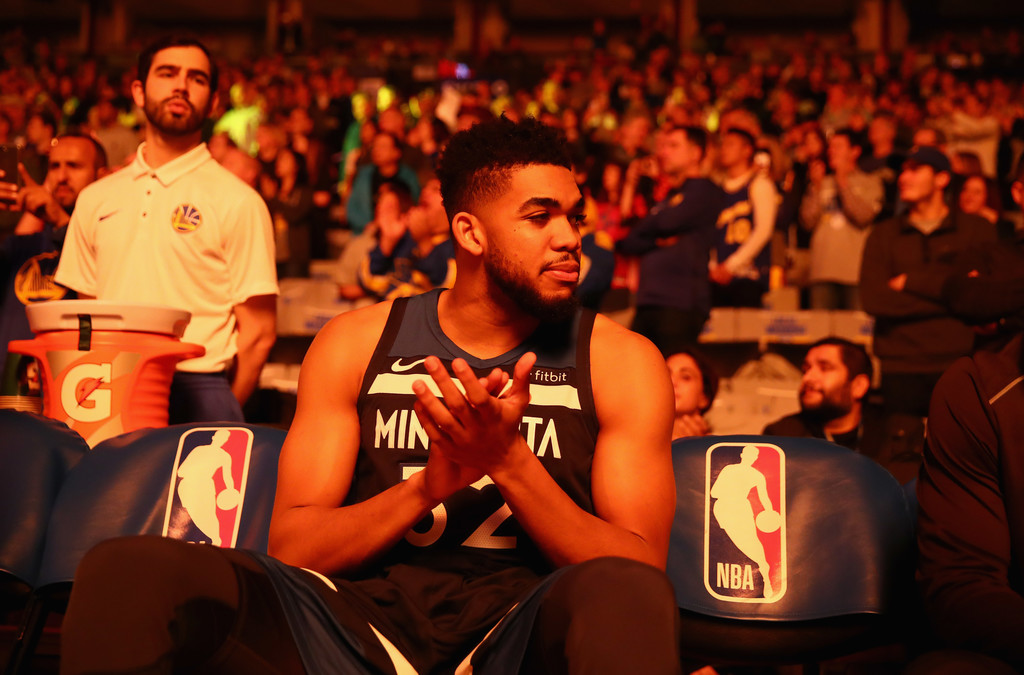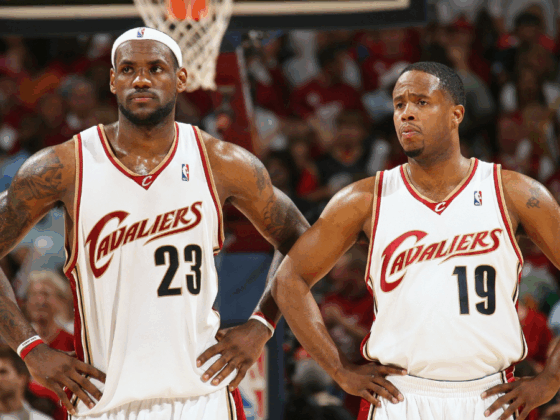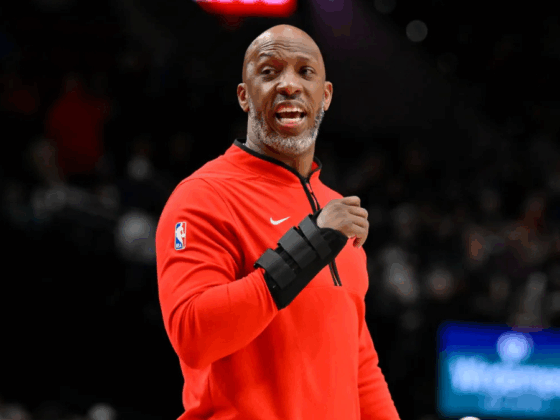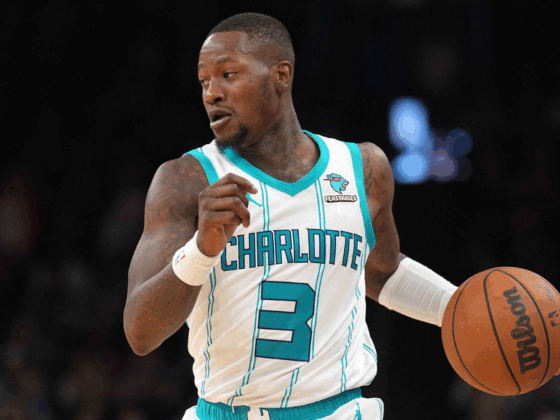
In what was a rather expected exit, the eight seed Minnesota Timberwolves lost to the one seed Houston Rockets in five, with the final defeat coming on Wednesday night. Minnesota was one of the most talked about teams heading into the season, with many predicting that they would finally break into the upper echelons of the Western Conference. This did not quite pan out for a variety of reasons that will be discussed below.
On the whole, Minnesota’s season was quite divisive, with some saying that the season was a failure because a team with really high levels of talent often played down to losing teams. Others, mainly people in Minnesota, said it was a success simply because they broke one of the longest playoff droughts of the 21st century. In reality, the success of the season falls somewhere in between these two extremes, as there were many positives, but there really should have been more.
The first major moves the Timberwolves made involved Tom Thibodeau re-uniting with two of his old players in Taj Gibson and Jimmy Butler, and both were inspired signings that really helped on both ends of the floor. Butler is comfortably the best player the Wolves have had since Kevin Garnett departed, and his impact on both ends was elite, with the Wolves being 13 points better off per 100 possessions with Butler on the court. It was not just Butler’s ability that was key for the Timberwolves, but his intensity and players did not slack when he was on the court, as he would have let them hear it.
Butler unified the team early in the season as the Timberwolves came out of the blocks a lot faster than they did in the previous season, and they reached the all-star break with a record of 36-25, and sat as the four seed, just one game behind the falling San Antonio Spurs. Home advantage in the playoffs was more than a possibility in February, it became an expectation and something that was likely to happen.

The major criticism of the Timberwolves at that point of the season was the heavy minutes being given to all of the starters apart from Jeff Teague, as those four players were in the top ten. These heavy minutes for the starters began to cause problems, and were really the main knock on Tom Thibodeau on his second year in charge. Jimmy Butler’s season was derailed by an meniscus injury, and this was the moment that turned the Timberwolves from a very good team, into just a good team. The Wolves slumped all the way down in the West, and were overtaken by fresher more modern teams with better minute’s management such as the Jazz and the Thunder.
Not only did the high minutes seemingly cause an injury to their best player, but the team became burned out in every game, and the Timberwolves had the worst defensive rating of any team in the fourth quarter, with a ghastly number of 112.6. Thibodeau’s defensive scheme based on overloading the strong side and pre-rotating doesn’t really work anymore anyway, but heavy minutes meant that the players were simply too tired to run any kind of defense down the stretch.
Heading into the playoffs, the Timberwolves were always likely to lose against the one seed, as the Rockets are elite on both sides of the floor. What disappointed many was the manner of the exit, as the Timberwolves looked lost for long periods, and the play of Karl-Anthony Towns has caused many to question whether Tom Thibodeau deserves another season. The Wolves did rank third in offensive efficiency in the regular season, but in honesty, we need to look beyond this number when ranking offensive schemes.
The Timberwolves sets were largely based on guard play which makes little sense given the construction of the roster, and Towns was really only given the ball in post-up situations, which seems silly given the fact that Towns is an elite three-point shooter. The Rockets exploited the one-dimensional nature of the Timberwolves sets, and Capela simply fronted Towns in the post, and caused the Timberwolves to shift the ball to their secondary players- their guards.

Some of this is no doubt on Towns as he is simply not assertive enough of a player, and he often over-complicates things, but Tom Thibodeau’s sets were exposed in the playoffs as they were not good enough when forced into freelance situations. Karl-Anthony Towns was a non-factor, and that is worrying, as there are so many ways to get the ball to your big man in this day and age. Yes, the Wolves were an excellent offensive team in the regular season, but that does not mean that the scheme and the offensive sets were not largely flawed. Not only did the Rockets expose the Wolves’ offensive sets, but you can argue that they mostly shut them down.
Doing such a harsh prognosis of the Timberwolves first-round exit seems harsh given the fact Butler got injured, but the issues with the offensive sets have to be analyzed, regardless of who the opposition was. Towns was brilliant throughout the season, and his season was one of the most efficient big man seasons of all time, but he needs to be used more, as his usage in the playoffs was below Derrick Rose and Andrew Wiggins, which simply isn’t good enough. I do think Tom Thibodeau realized this, as Towns took on a much bigger role in games four and five and got touches at the elbow, but this has to be a permanent fix, not a simple adjustment in one playoff series.
Talking about Thibodeau’s player management is something many have grown bored of, but in honesty, it just has to be discussed, as it is the easiest stumbling block in Minnesota’s way to fix. This summer, Thibodeau has to try and build a bench and find a way of adding three-point shooting, as the Wolves struggled for floor spacing unless Karl-Anthony Towns was on the court. What we must remember about the last off-season, is that Minnesota was not an attractive destination. They were a young team who were far off being a serious contender, and you simply cannot make role players sign for your team.
Adding shooting is really the only thing that the Wolves need this summer, as they have good depth in the frontcourt and a variety of good ball handlers. Minnesota ranked 16th in three-point percentage, but dead last in the frequency of three-point shots, which will not work as they are so awful on the defensive end.
Thibodeau’s first off-season was solid, Taj Gibson was brilliant on both sides of the ball and Jamal Crawford brought some much-needed scoring from the bench. Thibodeau prioritized experience in his first off-season, but this one needs to prioritize outside shooting and versatility, and generally, Tom Thibodeau rosters have not had these two things in abundance. This off-season is one that needs to turn Minnesota from a low seed into a high seed, as a team with two top-20 players has to be competing for home advantage at an absolute minimum.
Despite being seen by many as a win-now team, we must note that a few of the Timberwolves core pieces are very young. This team can compete now, but Karl-Anthony Towns took a huge step forwards on both sides of the ball. In addition to this, Andrew Wiggins improved greatly as a defender, and his offensive game is something that can improve with the addition of more outside shooters.






